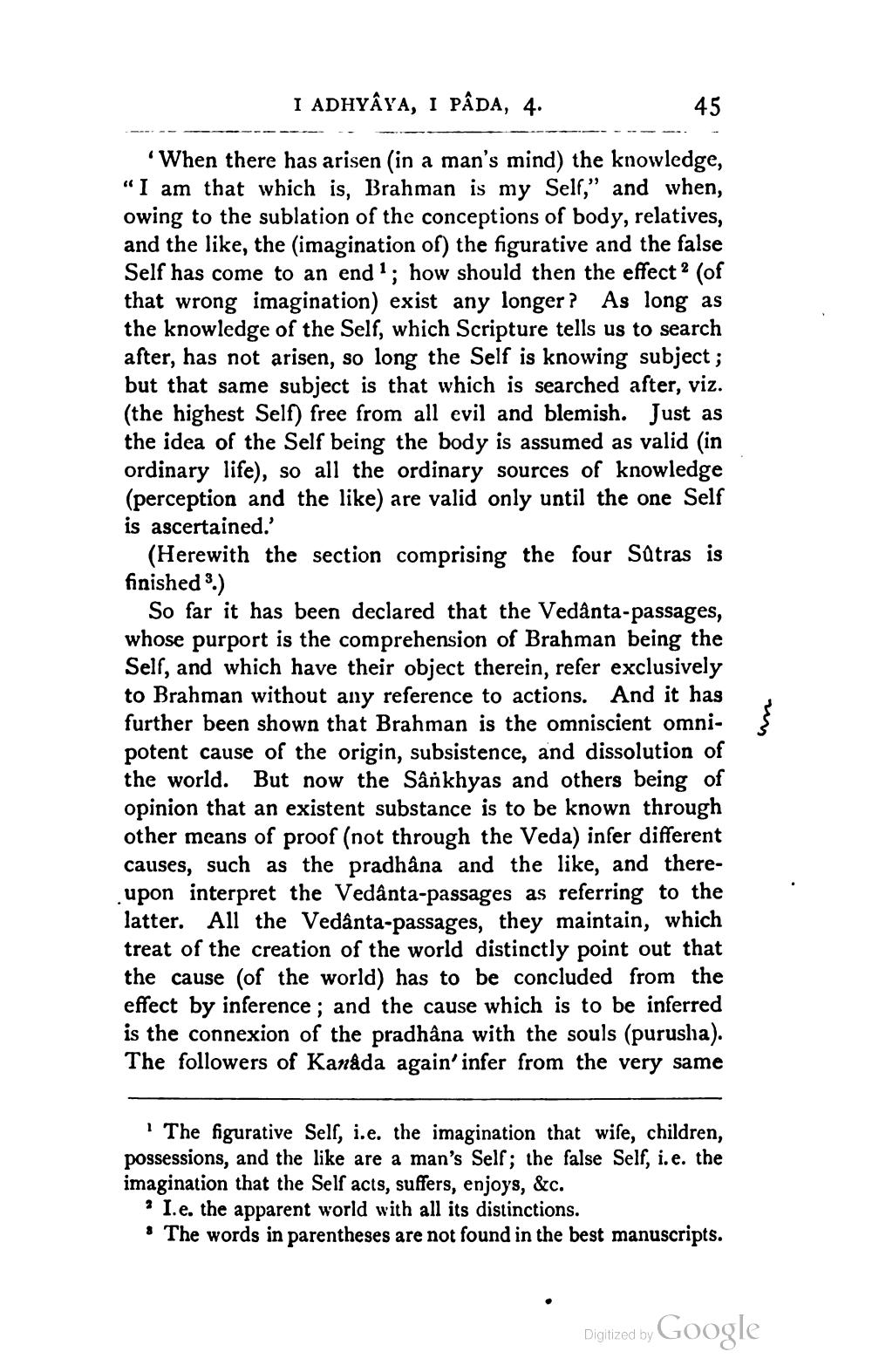________________
I ADHYAYA, I PÂDA, 4.
45
When there has arisen (in a man's mind) the knowledge, “I am that which is. Brahman is my Self," and when. owing to the sublation of the conceptions of body, relatives, and the like, the (imagination of) the figurative and the false Self has come to an end !; how should then the effect 2 (of that wrong imagination) exist any longer ? As long as the knowledge of the Self, which Scripture tells us to search after, has not arisen, so long the Self is knowing subject; but that same subject is that which is searched after, viz. (the highest Self) free from all evil and blemish. Just as the idea of the Self being the body is assumed as valid (in ordinary life), so all the ordinary sources of knowledge (perception and the like) are valid only until the one Self is ascertained.'
(Herewith the section comprising the four Satras is finished)
So far it has been declared that the Vedanta-passages, whose purport is the comprehension of Brahman being the Sell, and which have their object therein, refer exclusively to Brahman without any reference to actions. And it has further been shown that Brahman is the omniscient omnipotent cause of the origin, subsistence, and dissolution of the world. But now the Sankhyas and others being of opinion that an existent substance is to be known through other means of proof (not through the Veda) infer different causes, such as the pradhana and the like, and thereupon interpret the Vedanta-passages as referring to the latter. All the Vedanta-passages, they maintain, which treat of the creation of the world distinctly point out that the cause (of the world) has to be concluded from the effect by inference; and the cause which is to be inferred is the connexion of the pradhâna with the souls (purusha). The followers of Kanåda again' infer from the very same
The figurative Self, i.e. the imagination that wife, children, possessions, and the like are a man's Self; the false Self, i.e. the imagination that the Self acts, suffers, enjoys, &c.
* I.e. the apparent world with all its distinctions. : The words in parentheses are not found in the best manuscripts.
Digitized by Google




